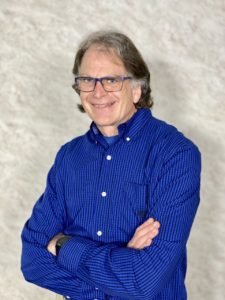
Written by David UitdeFlesch, MA, LLP, CAADC, CSAT-Candidate
Many people wonder why they should see a therapist who is certified when they are struggling with an addiction. I am presently working towards certification in sexual addiction therapy. I was hesitant to answer this question as it could be self-serving. However, as I learned to understand and treat process addiction and addiction across the board, my understanding has improved significantly from when I first started this work. Taking the path of getting certified has only helped my clients grow beyond where I could ever help them without certification.
My Experience
I have been treating sexual compulsive behaviors for a decade. I’ve specialized in it for almost 7. When I started treating individuals with these problems, I watched videos and read some books. I believed I had a good start and understanding of what I was doing. I learned a great deal from listening to individual’s stories and gaining from their wisdom. A therapist specializing in this area mentored me prior to passing away in an accident. My group meetings were successful. Men were getting help. Couples and individuals seemed to be responding to what I had to offer. I knew there was certification, but I figured that was just formalizing what I already knew. At that time, I chose not to invest in that work.
Then came a phone call from a previous patient. I thought I had done well in addressing his addiction. He was calling to let me know he was headed to residential treatment and that he had been dishonest with me during the time he was my patient. After treatment the facility referred him to a CSAT (Certified Sex Addiction Therapist). He did not come back to work with me. That started to get my attention.
My certification journey
The CSAT journey included four modules of training. Each module was four and half days. At the end of the first day, it was evident. There was a great deal of knowledge and information about treatment that I had missed. I felt like I needed to know this information if I were to be competent and truly meet patient’s needs. A significant part of becoming a certified CSAT is spending time doing work on our individual past experiences. This meant taking the assessments that we are being trained to give others, and digging into areas that may be blind spots for us. All of this proved to be valuable. This level of knowledge would have likely never been achieved without the certification process.
What does this mean for you?
Many people choose a clinician who is certified or even in the process of becoming certified. This is because you can be assured that you will be working with someone who has the best practice material available. Certified clinicians are trained and supervised by people who are the very best in their field. You will be seeing a therapist who knows how to support partners. Someone who can facilitate full disclosures safely with adequate preparation and planning.
Most importantly they can address underlying themes that tell the story of unresolved hurt and pain. You will be doing much more than focusing on behavioral changes. You will be getting to root causes. Through that you will identify reasons that all the efforts to change have not worked or have only led to temporary change. Relapses can and do still happen, but a certified therapist can help you walk through any relapse event. In addition, they help remove the shame that is so often attached to addictive/compulsive behaviors.
How easy it is to find a certified therapist?
You also will likely find that certified therapists are harder to get into for appointments. Even if it takes a few weeks longer it may be worth it. There are many competent therapists from which to choose from. In the end making a connection with someone you trust and believe in is the most important part of making healthy change. Certified therapists can bring you to longer lasting better results or at least increase the likelihood of being able to do so.
Lastly, here at Centennial Park we will soon be introducing a division of our practice called C.O.R.E. This stands for Center of Recovery Expertise. Everyone in the division will be certified professionals as CSAT or CAADC (Certified Advanced Alcohol and Drug Counselor) clinicians. Follow us on Facebook or keep an eye on our website for further information soon.

David is a Master level Licensed Psychologist. David enjoys working with adolescents, young adults, couples, and families. His areas of expertise include substance abuse/behavioral addictions, spiritual issues, anger issues, anxiety, and depression. Additional specialties include eating disorders, and EMDR. Learn more about him here.
